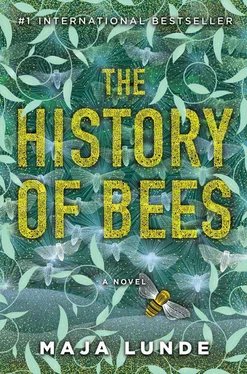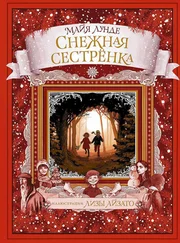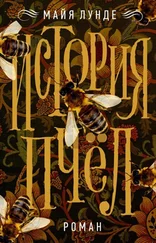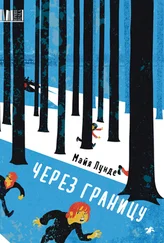Yes. I wanted it now. To give a speech, as she wanted. Because I also wanted, for my own part, to speak about Wei-Wen. I was going to talk about who he was for all of us, who he would become—the picture of him that had been printed on large pennants in the square, on posters along the walls of the buildings, on banners above the doorways of public buildings.
It was one of the few photographs we owned of him. It had been fuzzy and washed out, taken against a neutral, gray backdrop, but on the posters the colors were clear, the contrasts defined, and his eyes had been given more light.
This bright, sharp picture was what the world saw and it was what I was going to talk about. Not about him , Wei-Wen, I would never give him to them. The people out there would never know his eagerness, his stubbornness, his defiance. They would never learn of how he sometimes woke up singing, off-key, but with enthusiasm. They would never hear about his eternal runny nose, about changing his trousers damp with pee, rubbing ice-cold feet, or having a body warm with sleep against me at night. For them he would never be any of this. That’s why it didn’t matter anymore. That’s why the one he was didn’t matter. A single person’s life, a single person’s flesh, blood, body fluids, nerve signals, thoughts, fears and dreams meant nothing. My dreams for him didn’t mean anything, either, if I failed to put them into a context and see that the same dreams had to apply to all of us.
But Wei-Wen would nonetheless gain significance. The image of him. The boy wearing the red scarf, his face—that was the new era. For millions of people, his round cheeks, his large, shining eyes peering up at a bright blue sky were associated with a single word. A single, unifying feeling: hope.
Iwould like to express my gratitude to all the many professionals who have taken the time to read the manuscript and answer my questions: historians Ragnhild Hutchison and Johanne Nygren; China expert Tone Helene Aarvik; zoologist Petter Bøckman; physician Siri Seterelv; senior advisor Bjørn Dahle at the Norwegian Beekeepers Association (Norges Birøkterlag); advisor Ragna Ribe Jørgensen at ByBi, the Urban Beekeepers’ Association in Oslo; Roar Ree Kirkevold, who writes about beekeeping; beekeepers Ingar Tallakstad Lie and Per Sigmund Bøe and last but not least, Isaac Barnes at Honeyrun Farm in Ohio.
A special thanks also to all the committed people who have read, commented on and supported my work along the way: Hilde Rød-Larsen, Joakim Botten, Vibeke Saugestad, Guro Solberg, Jørgen Lunde Ronge, Mattis Øybø, Hilde Østby, Cathrine Movold, Gunn Østgård and Steinar Storløkken.
Finally, I would like to thank my wise editor, Nora Campbell, and all her accomplished colleagues at Aschehoug, who have demonstrated a warm enthusiasm for The History of Bees from the very first day.
I have drawn from a wide range of reference materials for the work on this novel. Among the most important are The Hive by Bee Wilson; Ingar’sis birøkt (“Beekeeping by Ingar”) by Roar Ree Kirkevold; Langstroth’s Hive and the Honey-Bee by Rev. Lorenzo Lorraine Langstroth; A World Without Bees by Allison Benjamin and Brian McCallum and Det nye Kina (“The New China”) by Henning Kristoffersen, along with the documentaries Vanishing of the Bees , More than Honey , Who Killed the Honey Bee? , Silence of the Bees and Queen of the Sun .
Maja Lunde Oslo, May 2015
A Touchstone Reading Group Guide
The History of Bees
Maja Lunde
This reading group guide for The History of Bees includes an introduction, discussion questions, ideas for enhancing your book club, and a Q&A with author Maja Lunde. The suggested questions are intended to help your reading group find new and interesting angles and topics for your discussion. We hope that these ideas will enrich your conversation and increase your enjoyment of the book.
Introduction
In the spirit of Station Eleven and Never Let Me Go , this dazzling and ambitious literary debut follows three generations of beekeepers from the past, present, and future, weaving a spellbinding story of their relationship to the bees—and to their children and one another—against the backdrop of an urgent global crisis.
England, 1852. William is a biologist and seed merchant who sets out to build a new type of beehive—one that will give both him and his children honor and fame.
United States, 2007. George is a beekeeper fighting an uphill battle against modern farming, but hopes that his son can be their salvation.
China, 2098. Tao hand paints pollen onto the fruit trees now that the bees have long since disappeared. When Tao’s young son is taken away by the authorities after a tragic accident, she sets out on a grueling journey to find out what happened to him.
Haunting, illuminating, and deftly written, The History of Bees joins these three very different narratives into one gripping and thought-provoking story that is just as much about the powerful bond between children and parents as it is about our very relationship to nature and humanity.
Topics and Questions for Discussion
1. The History Of Bees alternates between three perspectives: those of Tao, George, and William. With which of these three main characters did you most relate? To whom did you find it hardest to connect? With whom do you most identify?
2. On page 30, William’s mentor, Rahm, opines “One reproduces, has offspring, one instinctively puts their needs first, they are mouths to feed, one becomes a provider, the intellect steps aside to make way for nature.” Do you agree or disagree with Rahm’s statement? What do you think William felt when his mentor put it thusly?
3. On page 36, George thinks longingly of the bees’ buzzing as the “real reunion celebration.” How does George’s expectation of how his reunion with Thomas will go impact how the two men relate to each other?
4. Throughout the book, there’s great emphasis on experience vs. intellect. Think of George’s experience vs. Thomas’s books, Tao’s attempts to discover what happened to Wei-Wen, William’s relationship with Rahm. Which brand of “knowledge” do you think is more valuable?
5. George is preoccupied with leaving a “legacy” behind, resisting Emma’s attempts to move them to Florida. From where does his legacy ultimately come? Is it what you expected?
6. William, on page 116, says of his desired creation “Only humans could construct proper buildings, a building it was possible to monitor, which gave humans, not nature, control.” From where does the impulse to control nature come? Do you think that a desire to control the natural world is something humans can overcome without catastrophic reason?
7. How do the workings of the hive impart a lesson for humans? Is there any wisdom to be gleaned from the way their “society” works?
8. When George goes on the camping trip with young Tom, he tells him a tale about a snake (p. 186). What could the snake be symbolic of?
9. Colony Collapse is partially about abandonment of the queen. How does the theme of abandonment or fear of abandonment play out throughout the novel, specifically in Tao’s timeline?
10. Both William and Tao find refuge in going to bed, while George finds himself unable to rest. How do the characters hide from their loved ones? Where do they each find solace?
11. Which character do you think is most important in the book? Whose life story holds the three narrative threads together?
Читать дальше









